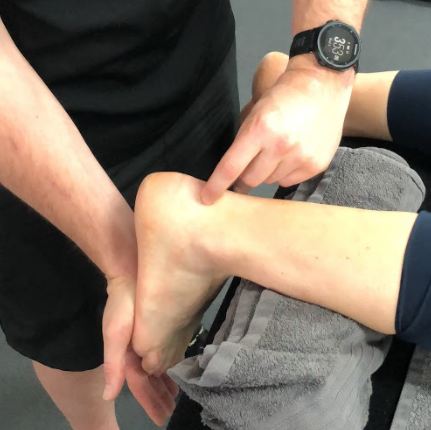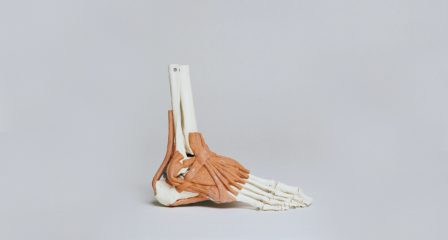Often when we start to get muscle or joint pain, our first reaction can be “something is wrong, I might need a scan”. The Achilles tendon is no different, being the second most common running injury (behind knee pain) many people with pain are curious to know:
“Do I need a scan to make sure I won’t make it worse?”
Usually for non-traumatic tendon injuries the answer is usually no.
As with most musculoskeletal injuries, radiological scans can be both useful, and confusing to managing a condition. Mainly because a scan won’t detect your pain and can add little to the clinical picture that is important to your individual presentation.
The most common scan requested for a painful achilles tendon is an ultrasound due to its ease of use and accuracy. It can be a reasonably easy and inexpensive measure to test the tendon, but the results can be misleading and rarely helpful for most people with Achilles tendinopathy.
This can be for 4 main reasons:
- The results seen on a tendon scan may not change even if pain is completely resolved and a full rehabilitation program has been completed.
- A scan may actually produce a worse result than the actual function of the tendon. i.e. it may look really swollen and degenerative, but you can still run, walk, gym at a really high level, therefore you shouldn’t reduce your activity just because the scan shows degeneration.
- People who do not have pain can have changes and tendinopathy detected on scans.
- It may lead to unnecessary interventions-like injections or surgery when other less invasive methods have not been introduced.
The best result is to treat the tendon function not the scan- a common approach to many musculoskeletal injuries. Usually a scan may not be required to confirm existence of tendinopathy, but if the symptoms continue to exist and do not follow the likely time frame a scan can be helpful to rule out other injuries to the area, like small tears or surrounding tissue. At The Injury Clinic we may discuss the use of a scan with you based on your functional testing, history of symptoms, activity goals and results from strength testing. If you have previously had a scan and you are concerned about the results, it is always best to bring these to your consultation and discuss it with our team.
REFERENCES:
De-la-Cruz-Torres, B., Barrera-García-Martín, I., de la Cueva-Reguera, M., Bravo-Aguilar, M., Abuin-Porras, V., & Romero-Morales, C. (2020). Ultrasound imaging features of the Achilles Tendon in dancers. Is there a correlation between the imaging and clinical findings? A cross-sectional study. Physical Therapy in Sport.
Lieberthal, K., Paterson, K. L., Cook, J., Kiss, Z., Girdwood, M., & Bradshaw, E. J. (2019). Prevalence and factors associated with asymptomatic Achilles tendon pathology in male distance runners. Physical Therapy in Sport, 39, 64-68.



